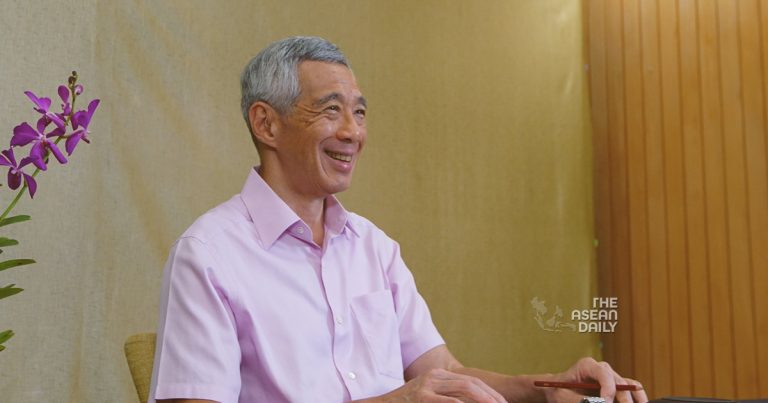3-8-2023 (SINGAPORE) The People’s Action Party (PAP) in Singapore finds itself in precarious waters as a series of political controversies involving prominent politicians cast a shadow on the country’s future leadership.
From a cabinet minister facing a graft probe to the resignation of a senior official due to an extramarital affair, these rare political dramas underscore the challenges Prime Minister Lee Hsien Loong encounters while navigating his carefully crafted succession plan.
The city-state’s Parliament recently convened for the first time since these incidents emerged, prompting Lee to address the issues head-on.
“Such incidents involving ministers are rare, and there is no rule or precedent on how to effect an interdiction on a political office holder,” Lee stated in Parliament, referring to the case of Transport Minister S. Iswaran, who faced arrest by the country’s anti-corruption agency on July 11.
Lee further explained that Iswaran, later released on bail, has been suspended from duties and is now receiving a significantly reduced monthly pay of 8,500 Singapore dollars ($6,300), far below the benchmark level of a minister’s monthly salary of SG$55,000.
The nature of the investigation by the anti-corruption agency has not been disclosed, and Iswaran has neither been charged nor convicted. Lee emphasized that investigations are still ongoing, and he refrained from providing further details to avoid prejudicing the process.
Shortly after Iswaran’s arrest, Tan Chuan-Jin, a former cabinet member once touted as a rising star among the next generation of leaders, stepped down as Speaker of Parliament and departed from the PAP due to his affair with another party member.
In hindsight, Lee acknowledged that after learning about the affair between the two PAP members in November 2020, he should have acted more decisively. He admitted, “I placed much weight on protecting their families, perhaps too much.”
The PAP has maintained uninterrupted rule for nearly six decades, thanks to its track record of guiding the country’s development and upholding a clean image. However, as the economy experiences a slowdown and other challenges such as an aging population and geopolitical tensions arise, the party’s foundations have weakened, and any dent in its clean image could adversely affect its administration.
Michael Barr, an associate professor at Australia’s Flinders University, remarked, “Singaporeans don’t feel that they are going forward economically or socially and haven’t done [so] for a decade or more.” He added, “The image of good, stable, and effective government overseen by good people is now in serious doubt.”
The political ramifications of these incidents have caused the government to abandon its preparations for an early general election, according to Barr. Instead, the current Parliament may run its full five-year term until late 2025.
Given that the PAP holds nearly 90% of the seats, a change of government in the next general election is highly unlikely. However, in the 2020 election, the opposition secured a record 10 seats, signaling a decline in voter confidence in the ruling party.
The upcoming general election is particularly critical for the PAP, coinciding with Lee’s carefully planned succession project. As Singapore’s third prime minister since 2004, Lee has been preparing Deputy Prime Minister Lawrence Wong to succeed him as the leader of the PAP’s “fourth-generation” or “4G” team.
Meredith Weiss, a professor of political science at the State University of New York in Albany, remarked that Lee has attempted to instill confidence in the ascending 4G leadership over the years. However, the recent incidents have posed challenges to the succession plan. Weiss noted, “The new guard might be able to make a case for renewal and change if they were more overtly different from Lee et al. or if their ascent was more organic, driven less through opaque party mechanisms than via popular mandate.” Yet, she pointed out that the promise of reliable continuity currently sustains the PAP’s strong mandate.
Chong Ja Ian, an associate professor at the National University of Singapore, emphasized that the timing of the succession will depend on how Lee and the next generation of leaders handle these political setbacks. Demonstrating initiative, decisiveness, and a reform plan to address underlying issues could boost confidence in the 4G leaders’ abilities to lead and pave the way for their eventual takeover.
During a BBC interview, Wong acknowledged the recent incidents as a “setback” for the ruling party and the government. He expressed his belief that they will learn from these experiences, improve the system, and uphold the trust Singaporeans place in the elected government and the system of governance.
Lee acknowledged that the PAP has taken a hit over the issue, but he reassured that both the party and its future leaders will adhere to the law, even if it proves politically embarrassing and painful. He stated, “This is how we will keep Singapore safe, strong, and prosperous for many years to come.”




